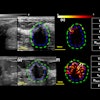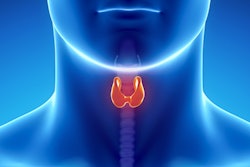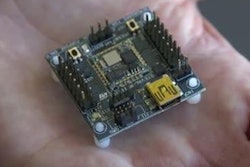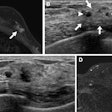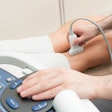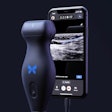Monday, November 27 | 3:50 p.m.-4:00 p.m. | SSE10-06 | Room E353C
Contrast-enhanced ultrasound (CEUS) is a viable tool for diagnosing the recurrence of Crohn's disease, and it's a less-invasive alternative to colonoscopy, according to researchers from Spain.A group led by Dr. María Jesús Martínez Pérez of Hospital Universitario Doctor Peset in Valencia conducted a study that included 108 patients with Crohn's disease who had undergone ileocolonic resection.
The researchers evaluated the performance of contrast ultrasound to diagnose recurrence and disease severity, calculating the sensitivity, specificity, positive and negative predictive values, and accuracy of CEUS. Finally, they compared the CEUS metrics with colonoscopy results using the kappa metric (a score of 1 indicates perfect agreement, 0 is the equivalent of chance, and less than 0 indicates agreement less than chance).
CEUS identified disease recurrence in 90 cases (83%); of these, severe recurrence was present in 57%. The best measures for the diagnosis of endoscopic recurrence were as follows:
- Ileum wall thickness of at least 3 mm: For this measure, CEUS had sensitivity of 94%, specificity of 72%, accuracy of 91%, and kappa agreement with colonoscopy of 0.66.
- The combination of ileum wall thickness of at least 3 mm and an enhancement of at least 46%: For this measure, CEUS had sensitivity of 91%, specificity of 89%, accuracy of 91%, and kappa agreement with colonoscopy of 0.70.
Contrast-enhanced ultrasound is a useful modality for diagnosing Crohn's disease recurrence and severity postsurgery, Martínez Pérez and colleagues concluded.
"CEUS is a tool that can increase our confidence in both postoperative recurrence detection and severity assessment in Crohn's disease ... [and] an alternative to colonoscopy," they wrote.




